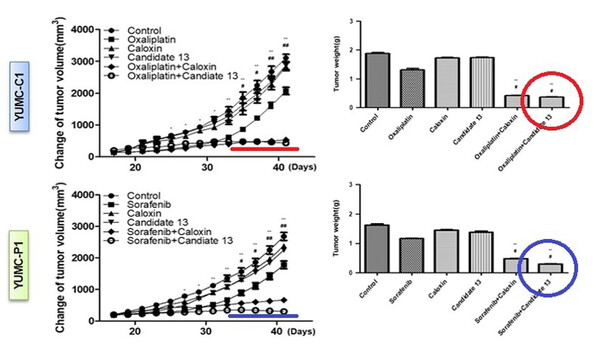Korean researchers said they have discovered a method to treat cancers that do not respond to existing anticancer drugs.
The research team, led by Professors Cheong Jae-ho and Park Ki-cheong at the Department of Surgery, Systems Cancer Biology & Biomarker Research Lab, Yonsei University College of Medicine, said they found a novel therapeutic target candidate that could be applied to the treatment of patients with refractory cancers.

Each tissue in the human body has stem cells that repeat growth and regeneration. About 1-2 percent of all cancers have “cancer stem-like cells (CSCs)” that have the ability to regenerate themselves. If CSCs differentiate into other cells even when attacked by anticancer drugs, they cause cancer recurrence and metastasis.
In general, cancer cells targeted by anticancer medicines face worsening tumor microenvironment and die. When the endoplasmic reticulum stress in cancer cells continues due to anticancer drugs, calcium ions secreted by protein IP3R accumulate in the mitochondria of the cells.
However, in certain cancer patients, activated CSCs show strong resistance to anticancer therapies. The resistance becomes so strong that existing anticancer drugs fail. Such a case is classified as refractory cancer.
The research team confirmed how anticancer drug-resistant cancer cells survive and analyzed cancer cells collected from patients who relapsed or metastasized while taking anticancer drugs. They found that the cells from patients with refractory cancers had CSCs.
Also, they found that the protein PMCA, which significantly increased in CSCs, continued to survive because they lowered the calcium ion concentration.
The research team developed a PMCA inhibitor (candidate 13) and confirmed its therapeutic effect with the standard anticancer drug in animal models.

The research team transplanted cancer cells from patients who showed resistance to standard anticancer drugs oxaliplatin and sorafenib, respectively, into animal models, and then administered the anticancer monotherapy to the tumor to examine changes in tumor volume.
The tumor size, which was 200 mm3 on average when only oxaliplatin was administered, continued to grow to 354.44 mm3 after 20 days, 1593.2 mm3 after 30 days, and 2756.36 mm3 after 40 days.
The results of sorafenib alone were also similar. The tumor size, which was 365.26 mm3 after 20 days, increased to 1116.26 mm3 after 30 days and 2998.77 mm3 after 40 days, showing resistance to anticancer drugs.
In contrast, using candidate 13 together with oxaliplatin and sorafenib, respectively, led to reduced tumor growth.
When the combination of oxaliplatin and candidate 13 was administered to a tumor that was initially 200 mm3, it was 254.32 mm3 after 20 days, 288.4 mm3 after 30 days, and 283.44 mm3 after 40 days.
Likewise, when sorafenib and candidate 13 were administered to a tumor that was initially 200 mm3, the size decreased and the growth rate was significantly lowered -- 274.33 mm3 after 20 days, 303.14 mm3 after 30 days, and 298.7 mm3 after 40 days.
The research team explained that the results of the study can be applied not only to drug-resistant cancers but also to other intractable cancers that show the characteristics of CSCs.
This is because refractory cancer avoids death by controlling the concentration of calcium ions in the cytoplasm when the tumor microenvironment deteriorates.
The study outcome is expected to open great possibilities for the development of therapeutic agents targeting drug-resistant cancers, as well as overall cancer treatment, the research team said.
The research team applied for domestic and international patents based on the latest study.
Based on this research, the research team applied for domestic and international patents. In addition, related technology was transferred to VeraVerse, a Korean company, and CKP Therapeutics, a Boston-based company in the U.S.
The study was published in the latest edition of BMC Medicine.

